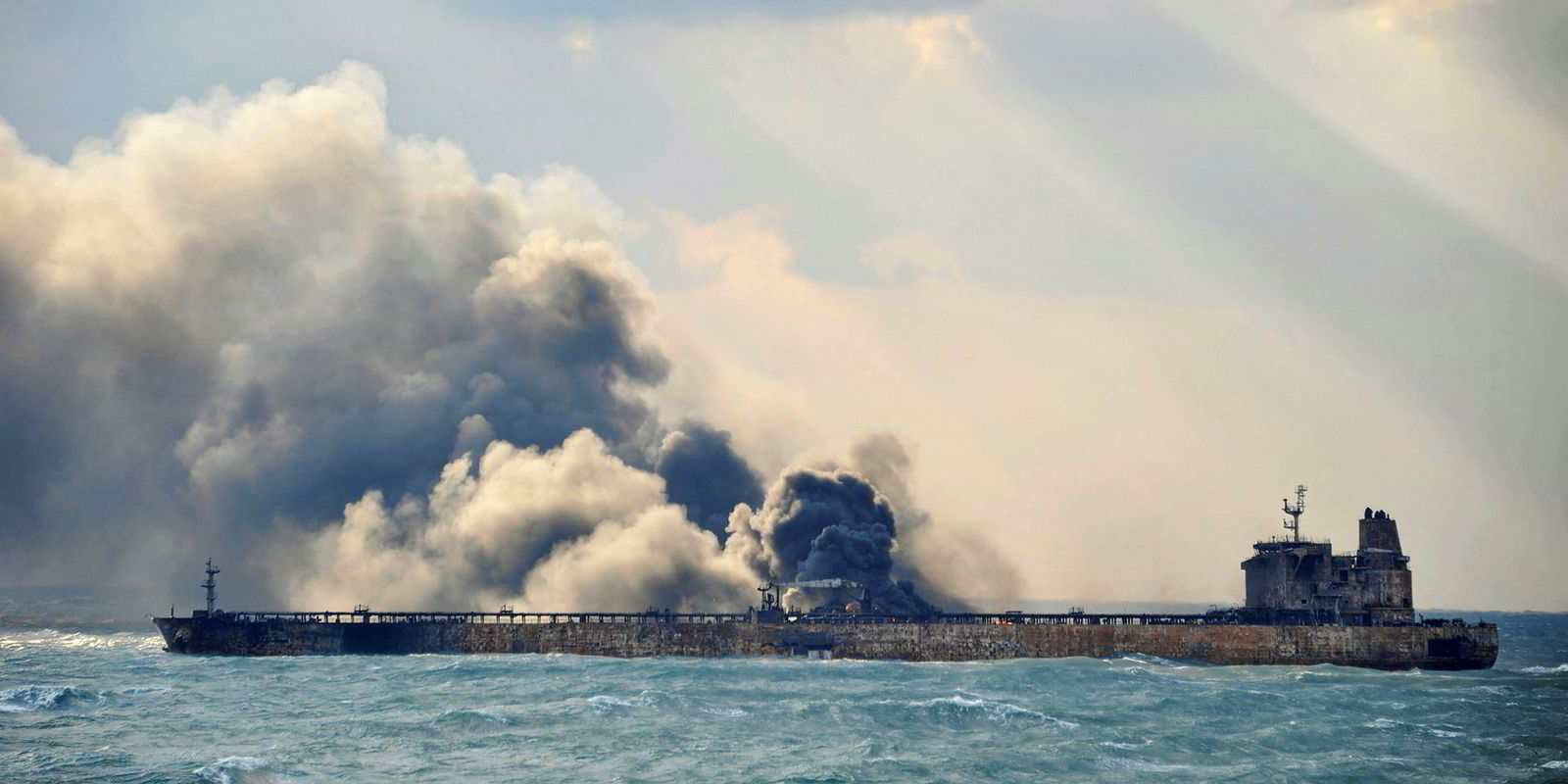Concerns are growing that the international banking community’s reluctance to deal with Iran could worsen and affect insurance payouts related to the loss of the 164,000-dwt tanker Sanchi (built 2008) and its 32 crew.
The National Iranian Tanker Co (NITC)-owned vessel exploded then sank after hitting the 76,000-dwt bulker CF Crystal (built 2001) off the coast of China.
Recent comments from US President Donald Trump that he is ready to reinstate sanctions against Iran if its 2015 nuclear deal is not improved have reportedly heightened sensitivity of banks towards dealing with Iranian-linked payments.
Steamship Mutual, which provided protection-and-indemnity cover to the Sanchi, is said to be dealing with the situation “transaction by transaction”.
When asked about banks dealing with Iran, a spokesperson said: “We are aware that there are issues.” But he added that so far, three weeks after the tragedy, the insurer had not faced any problems in processing Sanchi-related payments.
But he pointed out that as there is no legal restriction on non-US banks dealing with Iran, Steamship Mutual hopes it can persuade them to conduct the timely processing of payments.
“We will open discussions with banks on a transaction by transaction basis and encourage them to support payments to Iran,” the spokesperson said.
US banks are still bound by sanctions on Iran but this does not apply to non-US banks.
Despite the 2016 removal of sanctions against Iran linked to its nuclear affairs, there are still sanctions in place from the US and Europe associated with the Middle East country’s state sponsorship of terrorism and ballistic missiles programme.
Delays could add to the growing frustration in Iran over the response to the accident. There are already claims in the country that more could have been done by Chinese emergency responders to rescue the crew, which included 30 Iranians.
However, UK-based insurance sources told TradeWinds that even before Trump's comments on Iran, banks were taking up to 18 months to process payments when there was an obligation for insurers to conclude payments within 21 days.
One described banks as “hugely reluctant” to deal with Iran for reputational and internal “compliance” reasons.
The case of the 46,100-dwt Alpine Eternity (built 2009) is being held up as an example of just how difficult it can be to process payments to Iran.
The vessel hit an Iranian oil platform in the Persian Gulf. The insurance claim was complicated because the vessel had been pursued and fired at by Iranian patrol boats prior to the collision.
The claims reserve for the Britannia Club-insured vessel is currently $340m and the claim is still being processed.
There have been other impacts of the Iran sanctions on the Sanchi incident. It is understood US salvage firm Resolve Marine Group, which has an extensive emergency response, firefighting and oil pollution containment capability in China, was not able to put itself forward for the initial emergency response because, as a US firm, it had to stand by sanctions.
The potential payments to Iran will become clearer once the liability issues are settled. It could turn out to be a complicated and long-running issue, with virtually no automatic identification system data on the movements of the Sanchi or CF Crystal prior to the collision and doubts over the quality of information contained in the voyage data recorder taken from the sunken tanker.




